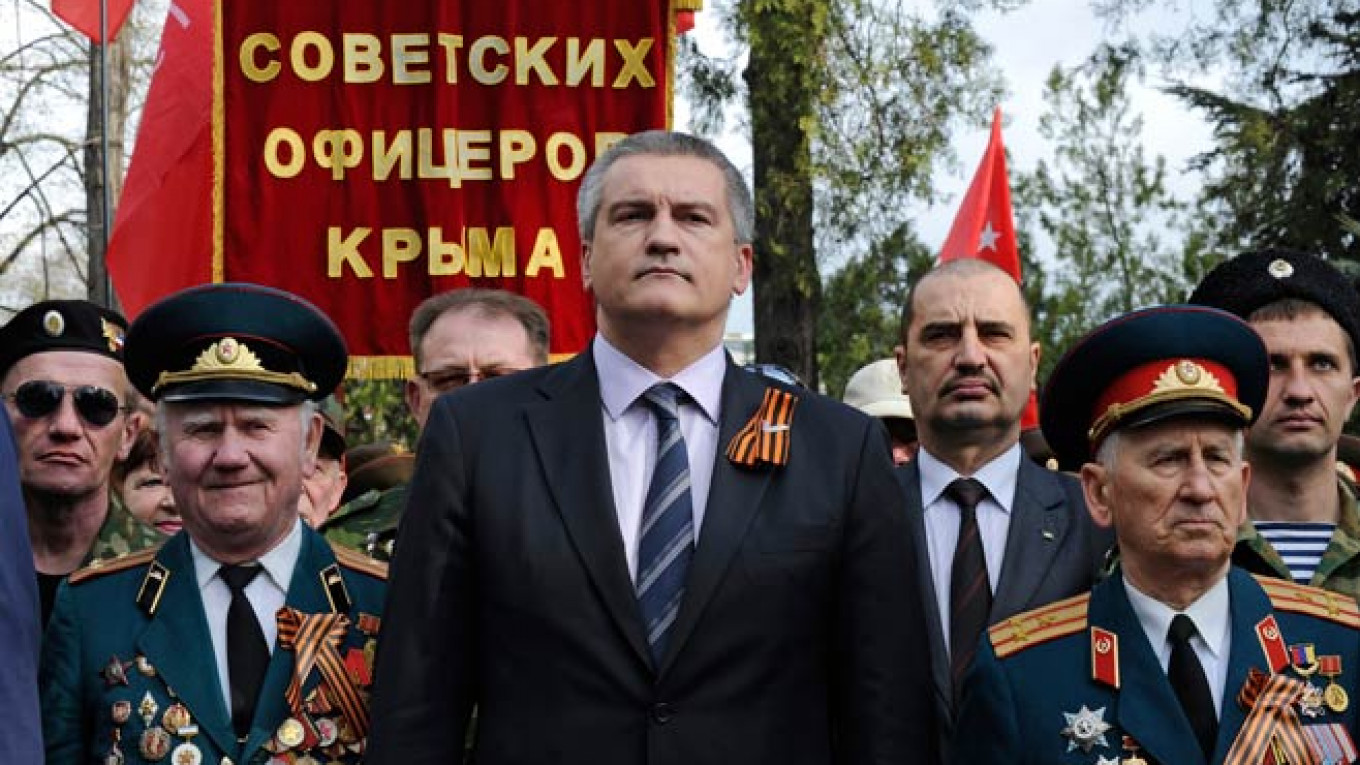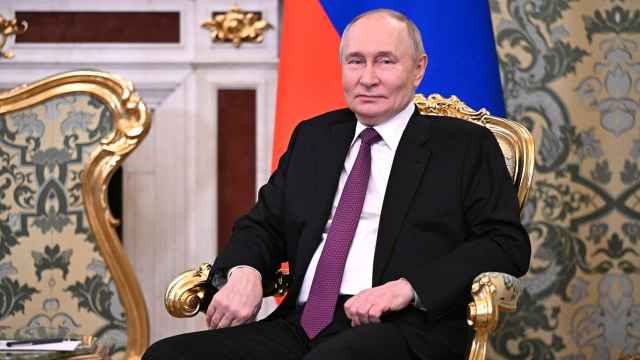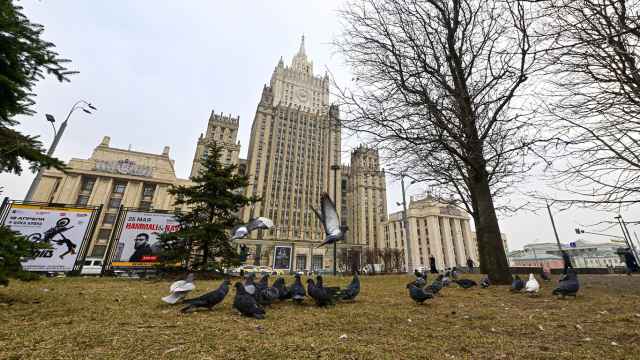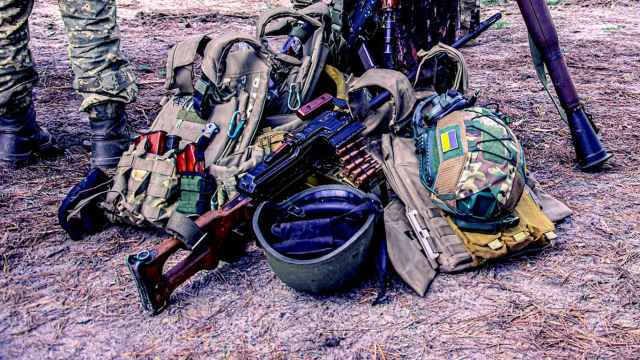SIMFEROPOL, Crimea — Crimean lawmakers adopted a new constitution on Friday, taking another step to cement the region's absorption into Russia despite strong objections from its Muslim Tatar minority.
Pro-Moscow legislators are eager to complete the Black Sea peninsula's integration into Russia and smooth over financial and legal difficulties that have left businesses in limbo since its break with Ukraine.
All 88 deputies present in the 100-seat legislature broke into applause and stood for the Russian national anthem after approving the constitution in the vote at a session ignored by dissenting lawmakers.
"Step by step we have led Crimeans to realize their dream of returning home to Russia," speaker Vladimir Konstantinov told the assembly of the region, which Soviet leader Khrushchev transferred from Russia to Ukraine in 1954.
It was the first assembly vote open to reporters since gunmen seized control of the building on Feb. 27 and legislators elected a pro-Russian regional leader, days after protesters in Ukraine's capital drove President Viktor Yanukovych from power.
In another step both legal and symbolic, a new version of the Russian Constitution, listing Crimea and its port city of Sevastopol, home of Russia's Black Sea Fleet, as "subjects of the Russian Federation," was posted on an official state website on Friday.
President Vladimir Putin signed legislation annexing Crimea last month following a referendum held after Russia had established military control. The vote has been dismissed as illegitimate by Ukraine and the West.
Taking the floor to cheer the vote, Crimean lawmakers hailed the speed at which the territory was moving to integrate with Russia. The legislation stipulates that Crimea will be fully integrated into Russia by Jan. 1, after a transition period.
But confusion has reigned as state institutions and businesses rush to conform to Russian law, with the Ukrainian state no longer in control and the banking system in disarray as Ukrainian and Western banks pull out of the region.
"In this short period we have taken the road from … a disenfranchised region among disenfranchised regions to becoming a republic of the Russian Federation; that is, an equal among equals," Konstantinov said.
The comments were a nod to the situation in eastern Ukraine, where armed pro-Russian separatists have occupied two official buildings in the largely Russian-speaking cities of Donetsk and Luhansk and called for a referendum like that held in Crimea.
In a vote directly after adopting a new constitution, Crimean lawmakers backed a declaration supporting those calls.
Kiev has rejected holding such votes in the east, saying the occupations and Moscow's calls for Ukraine to carry out constitutional reforms handing greater powers to its regions are part of a Russian-led plan to dismember the country.
Members of the 300,000-strong Muslim Tatar minority, who make up some 15 percent of Crimea's population and have opposed Russia's takeover, protested their lack of inclusion in the drafting of the new constitution.
"The hastily compiled text of the draft constitution was given to deputies only hours before the vote," the Crimean Tatar assembly said in a statement, describing its adoption as "unacceptable."
Under Crimea's new constitution, the head of the region will be elected to a five-year term by parliament and the size of the assembly will be cut from 100 to 17 deputies. Konstantinov said he expects parliamentary elections in the fall.
A Message from The Moscow Times:
Dear readers,
We are facing unprecedented challenges. Russia's Prosecutor General's Office has designated The Moscow Times as an "undesirable" organization, criminalizing our work and putting our staff at risk of prosecution. This follows our earlier unjust labeling as a "foreign agent."
These actions are direct attempts to silence independent journalism in Russia. The authorities claim our work "discredits the decisions of the Russian leadership." We see things differently: we strive to provide accurate, unbiased reporting on Russia.
We, the journalists of The Moscow Times, refuse to be silenced. But to continue our work, we need your help.
Your support, no matter how small, makes a world of difference. If you can, please support us monthly starting from just $2. It's quick to set up, and every contribution makes a significant impact.
By supporting The Moscow Times, you're defending open, independent journalism in the face of repression. Thank you for standing with us.
Remind me later.






